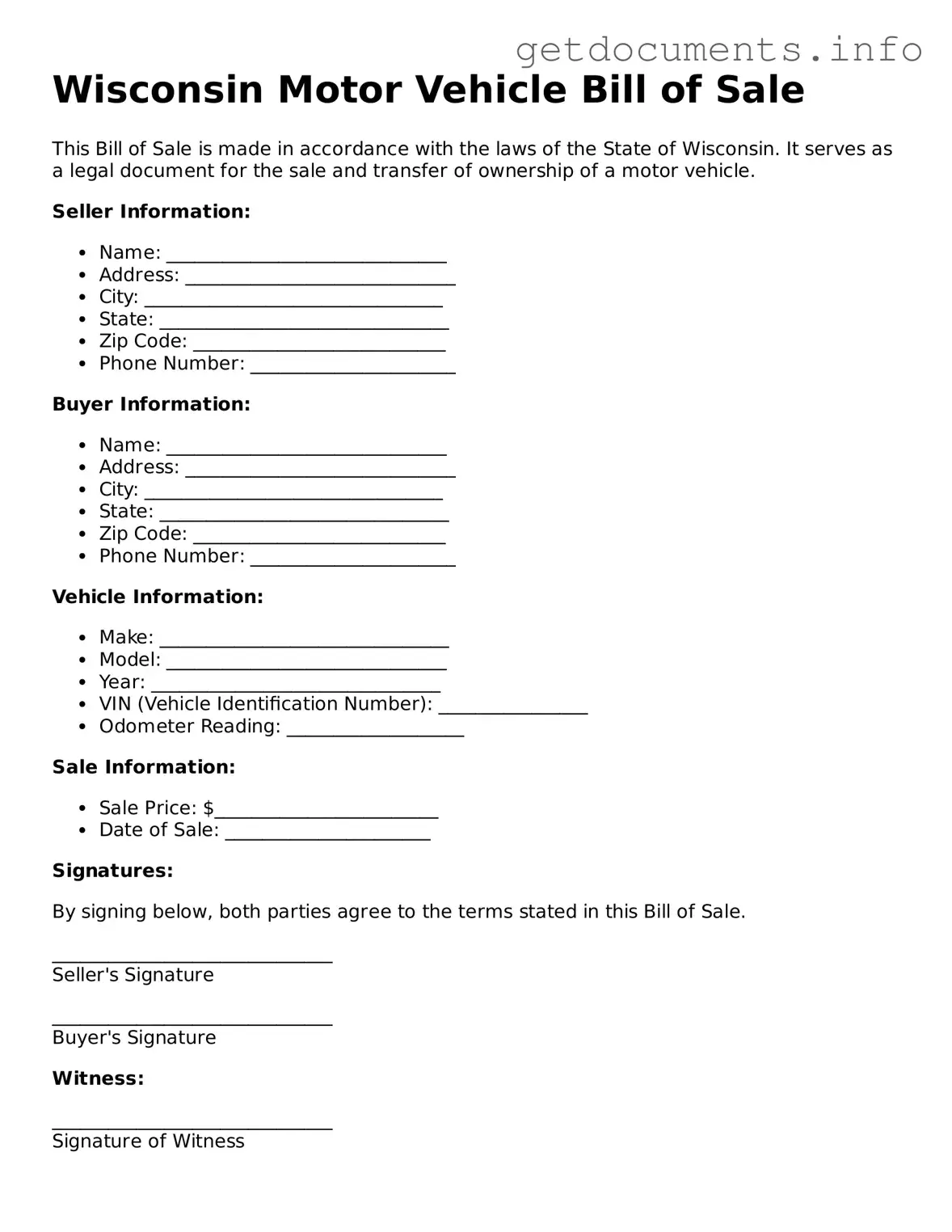Free Motor Vehicle Bill of Sale Template for Wisconsin
The Wisconsin Motor Vehicle Bill of Sale form serves as a legal document that records the transfer of ownership of a motor vehicle from one party to another. This form is essential for both buyers and sellers, ensuring that the transaction is documented and compliant with state regulations. To facilitate a smooth transfer, it is important to fill out this form accurately and completely.
Start the process of transferring ownership by filling out the Wisconsin Motor Vehicle Bill of Sale form today. Click the button below to get started!
Access Motor Vehicle Bill of Sale Editor

Free Motor Vehicle Bill of Sale Template for Wisconsin
Access Motor Vehicle Bill of Sale Editor
Got places to be? Complete the form fast
Fill out Motor Vehicle Bill of Sale online and avoid printing or scanning.
Access Motor Vehicle Bill of Sale Editor
or
⇩ PDF File
